Search
Remove Ads
Advertisement
Summary 
Loading AI-generated summary based on World History Encyclopedia articles ...
Search Results
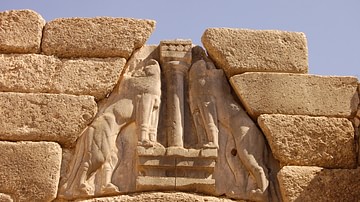
Definition
Mycenae
Mycenae was a fortified late Bronze Age city located between two hills on the Argolid plain of the Peloponnese, Greece. The acropolis today dates from between the 14th and 13th century BCE when the Mycenaean civilization was at its peak of...
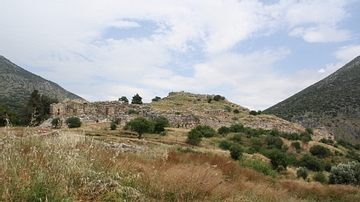
Image
Mycenae
The Citadel of Mycenae, occupied from late Neolithic times until the twelfth century BCE. The Mycenaean civilization was at its peak from 1350-1200 BCE and it is from this period that the fortifications acquired the form seen today.

Video
Mycenae, Greece: Ancient and Mysterious
Mycenae, a hilltop fortress located on the Peloponnesian Peninsula SW of Athens was the hub of a mighty civilization that dominated the Greek world between 1600 and 1200 B.C., a thousand years before Athens' Golden Age. The Mycenaeans were...

Image
Treasury of Atreus, Mycenae
Mycenaean tholos tomb at Mycenae (1450 BCE).
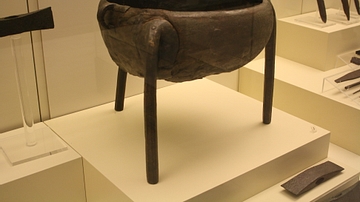
Image
Bronze Tripod Cauldron, Mycenae
Mycenaean bronze tripod cauldron (1180-1050 BCE), Mycenae. Archaeological Museum, Mycenae.
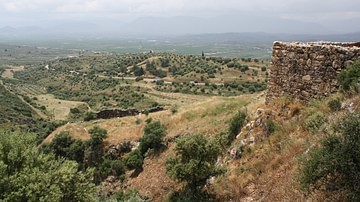
Image
Citadel of Mycenae
The view to the south from the upper citadel of Mycenae looking towards Argos (1350 BCE).
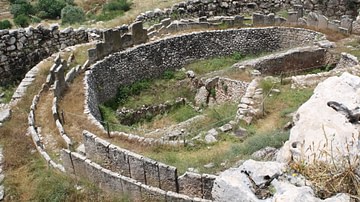
Image
Grave Circle A, Mycenae
The royal grave circle within the walls of Mycenae (1600 BCE). It was in the shaft graves here that Heinrich Schliemann discovered in 1876 CE the famous gold death mask attributed (incorrectly) to King Agamemnon.
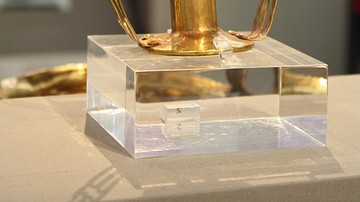
Image
Gold Stemmed Cup, Mycenae
A gold stemmed cup from Mycenae, often called the 'Cup of Nestor' following Homer's description. A dove rests on the top of each handle. 16th century BCE, Grave IV, Grave Circle A, Mycenae. (National Archaeological Museum, Athens)
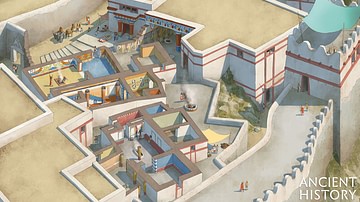
Image
Recreation of the Cult Centre at Mycenae
A modern recreation of the palatial cult centre at Mycenae during the Greek Bronze Age, by Rocío Espin.
Courtesy of Ancient History Magazine / Karwansaray Publishers.
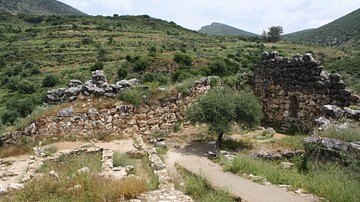
Image
South Gate, Mycenae
The south gate of the citadel (1200 BCE) with foundations of two houses (A & B) visible on the left.